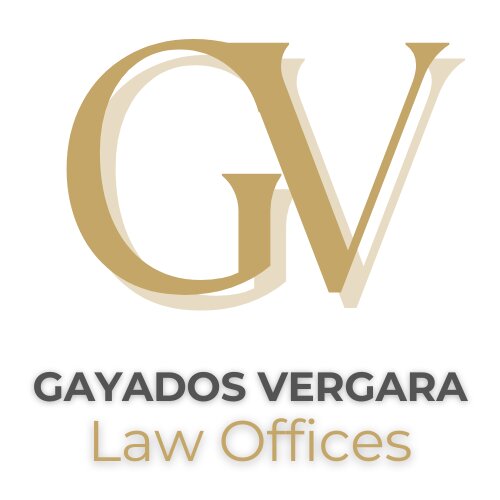Best Constitutional Law Lawyers in Pasay
Share your needs with us, get contacted by law firms.
Free. Takes 2 min.
List of the best lawyers in Pasay, Philippines
About Constitutional Law in Pasay, Philippines:
Constitutional Law in Pasay, Philippines refers to the body of laws that govern the fundamental principles of the country as outlined in the Constitution. This branch of law deals with issues related to the structure of government, the rights of individuals, and the distribution of power between different branches of government.
Why You May Need a Lawyer:
There are several situations where you may require legal help in Constitutional Law, such as challenging a government action that infringes on your constitutional rights, seeking redress for violations of your rights, or interpreting complex legal provisions within the Constitution.
Local Laws Overview:
In Pasay, Philippines, the Constitution is the supreme law of the land, and all other laws must conform to its provisions. Key aspects of local laws that are particularly relevant to Constitutional Law include the protection of individual rights, the separation of powers between branches of government, and the process for amending the Constitution.
Frequently Asked Questions:
1. What are the fundamental rights guaranteed by the Philippine Constitution?
The Philippine Constitution guarantees rights such as the right to life, liberty, and property, freedom of speech, freedom of religion, and equal protection under the law.
2. How can I challenge a law that I believe is unconstitutional?
You can challenge a law by filing a petition for judicial review with the Supreme Court of the Philippines, which has the authority to declare a law unconstitutional.
3. Can the Constitution be amended?
Yes, the Constitution can be amended through a process outlined in the Constitution itself, which typically involves the approval of Congress and a majority vote in a national referendum.
4. What is the doctrine of separation of powers?
The doctrine of separation of powers refers to the division of government into three branches - the legislative, executive, and judicial - each with separate and distinct powers to prevent abuse of power.
5. What is the role of the Supreme Court in interpreting the Constitution?
The Supreme Court has the authority to interpret the Constitution and determine whether laws or government actions are constitutional.
6. How can I protect my constitutional rights as a citizen?
You can protect your rights by being aware of them, speaking out against violations, and seeking legal assistance if your rights are infringed.
7. What are the limitations of constitutional rights?
Constitutional rights are not absolute and may be limited in certain circumstances, such as in the interest of national security or public order.
8. What is the difference between constitutional law and other branches of law?
Constitutional law focuses on the principles set forth in the Constitution, while other branches of law deal with specific legal issues such as contracts, property, or criminal law.
9. Can the government be sued for violating the Constitution?
Yes, individuals can file legal actions against the government for violating constitutional rights through a process called a writ of mandamus or a petition for certiorari.
10. How can I stay informed about changes in constitutional law?
You can stay informed by following legal news, reading Supreme Court decisions, and consulting with legal professionals who specialize in constitutional law.
Additional Resources:
For more information on Constitutional Law in Pasay, Philippines, you can contact the Supreme Court of the Philippines, the Integrated Bar of the Philippines, or consult with a reputable law firm specializing in constitutional law.
Next Steps:
If you require legal assistance in Constitutional Law in Pasay, Philippines, it is advisable to seek out a qualified lawyer who has experience in handling constitutional cases. You can schedule a consultation to discuss your legal issues and explore your options for seeking redress or protection of your constitutional rights.
Lawzana helps you find the best lawyers and law firms in Pasay through a curated and pre-screened list of qualified legal professionals. Our platform offers rankings and detailed profiles of attorneys and law firms, allowing you to compare based on practice areas, including Constitutional Law, experience, and client feedback.
Each profile includes a description of the firm's areas of practice, client reviews, team members and partners, year of establishment, spoken languages, office locations, contact information, social media presence, and any published articles or resources. Most firms on our platform speak English and are experienced in both local and international legal matters.
Get a quote from top-rated law firms in Pasay, Philippines — quickly, securely, and without unnecessary hassle.
Disclaimer:
The information provided on this page is for general informational purposes only and does not constitute legal advice. While we strive to ensure the accuracy and relevance of the content, legal information may change over time, and interpretations of the law can vary. You should always consult with a qualified legal professional for advice specific to your situation.
We disclaim all liability for actions taken or not taken based on the content of this page. If you believe any information is incorrect or outdated, please contact us, and we will review and update it where appropriate.








